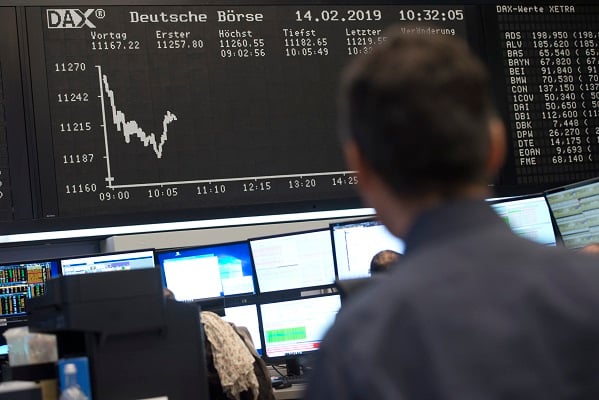Some 80% of investors are following the ‘keep calm and do nothing’ mantra in response to rising inflation, according to a new poll by interactive investor, the UK’s second largest DIY investment platform.
The poll, of a massive 4,983 interactive investor website visitors between 26 January and 7 February 2022, also found that 7% of respondents said they are selling investments that are vulnerable to inflation.
In addition, only 4% said they were reducing the amount they invest because of cost of living rises, and fewer (3%) said they are buying investments vulnerable to inflation in an attempt to buy on the dip.
Richard Hunter, Head of Markets, interactive investor, says: “However transitory inflation may (or may not) be, the world’s central banks have taken up arms to attempt to tackle the problem. Rising interest rates should have some effect, while at some point the supply chain blockages which have pushed up raw material prices should begin to subside. Less clear is the current direction of the oil price and, in the event of approaching full employment (especially in the US), how wage inflation may also persist.
“As such, some ii website visitors have taken the current opportunity to rebalance their portfolios in view of inflation risk. For the vast majority, however, there has been no action on the basis of the longer-term investment view. It is a reminder that it is time in the market which counts, as opposed to timing the market.”
Myron Jobson, Senior Personal Finance Analyst, interactive investor, says: “Rising inflation quickly erodes household budgets, but the effect on investments isn’t as obvious. The vast majority of the sample have reacted by doing nothing – which is often the best approach to take for long term investors.
“The difficulty with volatile markets, combined with once in a generation-type economic events, is knowing how and when to invest. Attempting to time markets is a fool’s errand, and those who try often lose money. Investing is a long-term game – which means riding out short‐ term volatility rather than trying to sell before markets fall.
“Nervous investors need to have clear goals and a framework in place before they invest. History shows that investments, given time, have a knack of producing returns that far outstrip inflation and cash returns. That’s as long as you have a balanced portfolio. Think global, well diversified funds and investment trusts as a starting point, which spread risk across hundreds of sectors, markets, and countries.
“Another sensible approach for worried investors is to drip feed cash into their investments rather than investing everything at once. This helps to help smooth out the inevitable bumps in the market, buying fewer shares when prices are high and more when prices are low – a process known as pound-cost averaging.
Investing for inflation
Dzmitry Lipski, Head of Funds Research, interactive investor, says: “Equities offer the most growth potential over the longer term and historically provided returns that beat inflation. Rising prices can mean profit for companies that have pricing power and can quickly pass on the cost, which in turn boosts share prices but over the long term.
“Inflation shocks can be as painful for equities as they are for bonds. That’s where commodities like gold can be a useful inflation hedge, but don’t get carried away: gold can be unpredictable too. Whether reacting to the strength of the US Dollar, interest rates or anything else, don’t rely too heavily on gold, but it can be a useful complement to a well-diversified portfolio.
“Capital Gearing Trust is a great way to help guard against inflation, with a focus on preserving wealth in real terms. The trust does this through a diversified portfolio of equities and government bonds, with property and infrastructure part of the mix too. An allocation to US index linked government bonds is particularly helpful in fighting inflation, as these assets can come into their own when other assets are struggling.”






Leave a Comment